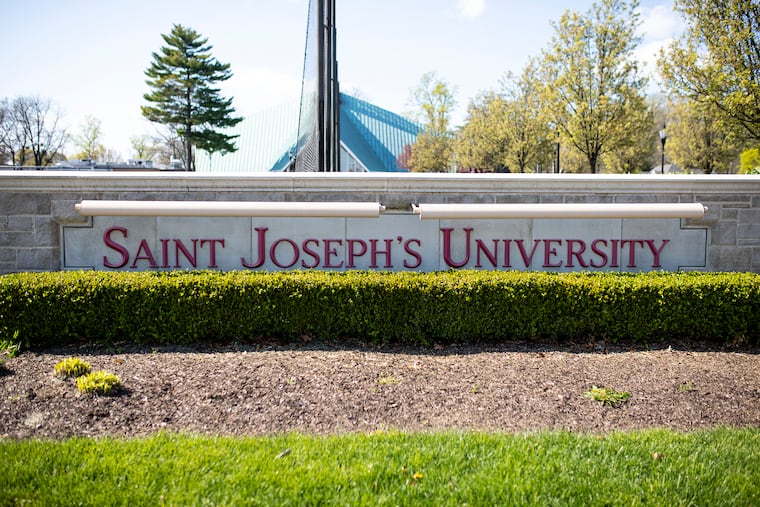St. Joseph’s University asks a sorority to quarantine after potential coronavirus exposure
Students of the Alpha Phi sorority also were being asked by the university to get tested Thursday or Friday. The university declined to say how many had already tested positive or were symptomatic.

St. Joseph’s University has ordered more than 100 members of a sorority to quarantine for several days after some tested positive for the coronavirus, displayed symptoms, or had close contact with someone who did.
Students in Alpha Phi sorority also were asked by the university to get tested Thursday or Friday. The sorority, which has 115 members, does not have an on-campus house, and no single gathering has been identified as leading to cases, the school said. But university officials felt a quarantine was necessary.
St. Joseph’s declined to say how many sorority members tested positive for the virus or have symptoms, although the university’s coronavirus website has reported 54 cases among all of its students, including 44 on campus.
But in a statement about the sorority, school officials said “enough members of this organization were being identified through contact tracing from enough different leads that it warranted a precautionary step.”
It also said the Alpha Phi students were expected to remain in quarantine for two or three days pending the test results, "and longer should any positives emerge.”
» READ MORE: Penn State sees another uptick in coronavirus cases but says there’s no need to cancel classes
Jane McClintock, whose daughter is a junior in Alpha Phi, said the school was unjustified in quarantining all sorority members. They don’t all live together, some live off campus, and the university has no evidence that they violated rules and held a gathering, she said, adding that they didn’t.
“These kids are being made to stay in their houses with masks on with no proof of wrongdoing,” said McClintock, of Delran. “It’s like sending someone to jail without a trial.”
Students can’t go to work or to class despite paying tuition, she said. She also said she didn’t like the tone of the email from the university to sorority members, which read: “The university expects your cooperation with this public health request and trusts that you will comply so that action against the sorority is not necessary.”
» READ MORE: At Ursinus College, all students are tested for the coronavirus every week
McClintock asked: “Where are the constitutional rights in this?”
The university said that students signed a pledge before they arrived for the fall semester, acknowledging that they would need to cooperate with safety measures.
“Our efforts to offer an in-person experience for our students — something that so many students have told us they prefer — requires vigilance and sometimes, sacrifice,” the school said in its statement. “We may end up quarantining students who do not end up positive for a short amount of time, but we consider this a small inconvenience that serves the greater community.”
Compliance, the university said, has been good.